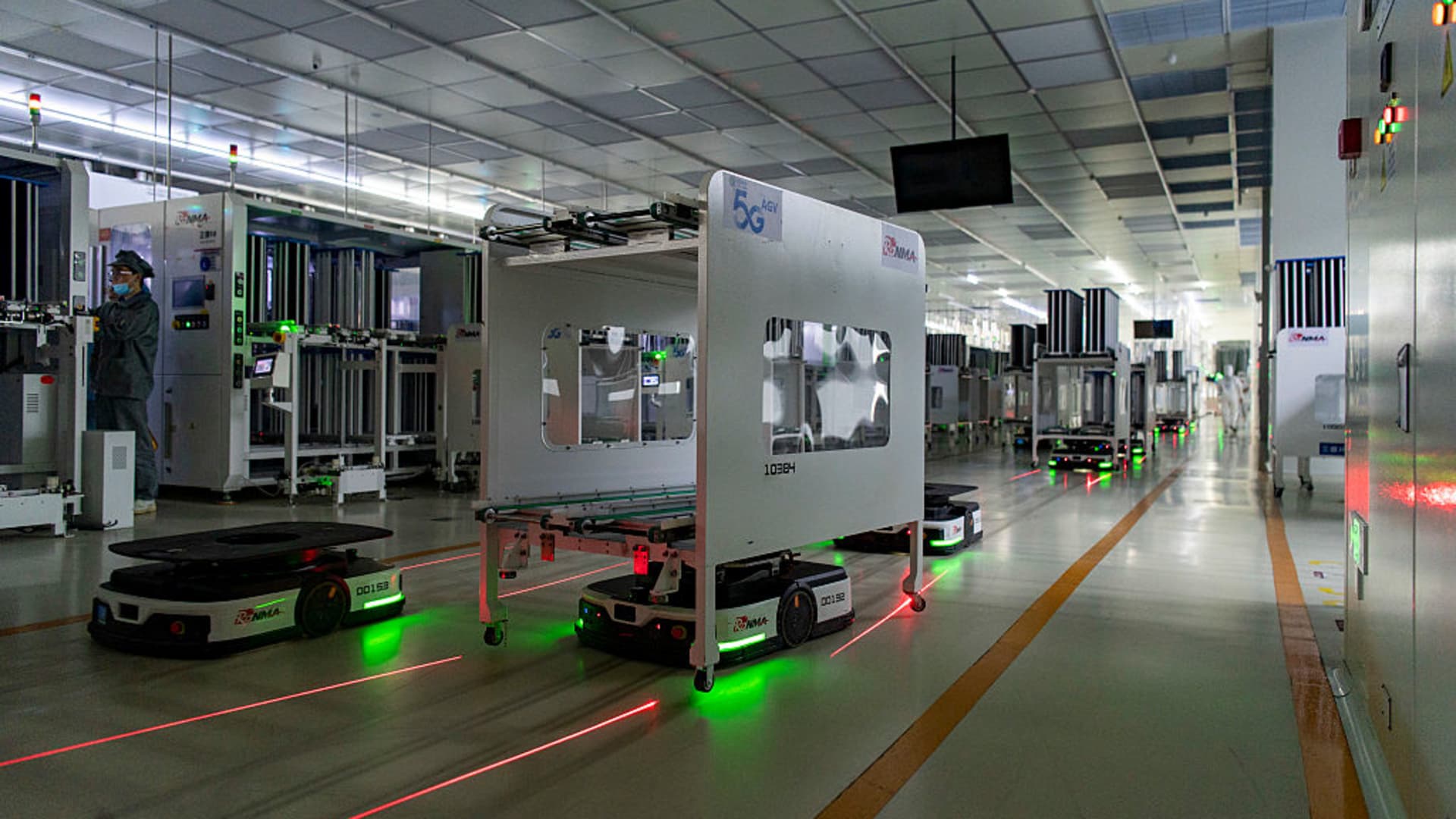China is not only installing more robots, but building more of them. That thesis is driving Morgan Stanley’s view that China will keep growing as a global robotics leader, giving two Chinese companies an edge, investment analysts said in a Sept. 30 report shared with media in the last week. The analysis came on the heels of the International Federation of Robotics’ annual report released in late September that showed that in 2024, China not only installed a record high 295,000 industrial robots, but domestic suppliers outsold foreign ones for the first time. “As robotics in China is opening up new markets, there is no indication that robot demand in China will decrease,” the report said. “There is still a lot of potential in Chinese manufacturing for 10% growth on average each year until 2028.” Global robot installations are forecast to grow by 6% this year to 575,000 units, and climb to more than 700,000 by 2025. With the latest advances in generative artificial intelligence, robots could soon be used more widely in new scenarios such as working together with humans or in service roles, the Morgan Stanley analysts said. “We prefer Inovance and Geekplus ,” they said. While Shenzhen-listed Inovance is a widely followed supplier of industrial automation products, Geekplus has largely flown under the radar and only listed in Hong Kong this summer. Geekplus sells automated robot systems primarily for moving products around warehouses. More than 70% of the company’s revenue came from outside mainland China in 2024 , while Geekplus claims its customers include more than 65 Forbes Global 500 companies . Analysts at Daiwa Capital Markets revealed those clients include Unilever, Walmart and Adidas, according to an Oct. 3 report that initiated coverage of Geekplus with a buy rating. The four companies did not immediately respond to a request for comment. The Daiwa analysts expect Geekplus to reach profitability this year, and benefit from industry growth of more than 30% a year through 2029. The Chinese company is also “well-prepared for U.S. tariffs,” the report said. It noted that even though about a quarter of Geekplus’ revenue comes from the U.S., the company charges 30% less than competitors, which gives it room to raise prices, while it could shift assembly to Japan. Morgan Stanley’s favorability on Geekplus is based on a comparison to the humanoid and autonomous driving sectors, with a caveat that execution uncertainty remains in addition to a smaller potential warehouse market. But the analysts expect Geekplus could benefit from the opportunity to gain market share faster than the overall industry’s growth. As for Inovance, the Morgan Stanley analysts said that if the economy grows faster than expected, that would boost demand for automation products. The analysts are particularly watching for whether Inovance’s EV control systems will see better-than-expected sales this year, supporting the stock. HSBC analysts in mid-September upgraded Inovance to buy from hold “given its market leadership in factory automation.” “We expect China’s industrial automation market to resume growth in 2026-27, after two years of downturn,” HSBC said. As a result, they expect Inovance can grow its earnings by 22% a year through 2027. —CNBC’s Michael Bloom contributed to this report.
Blog
-
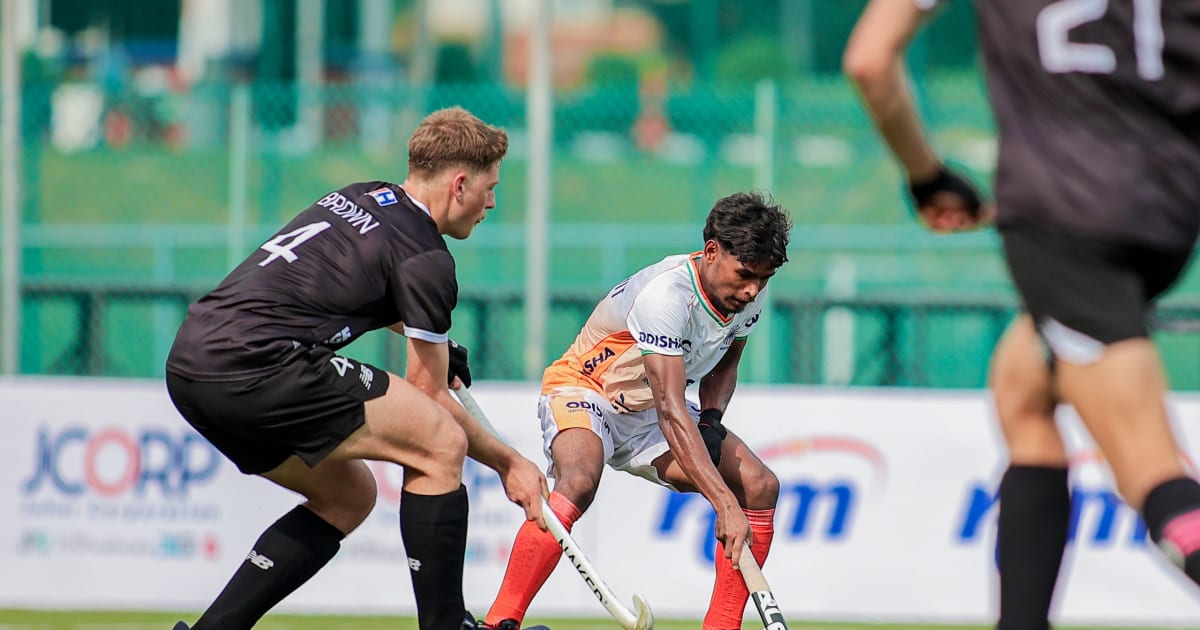
India beat New Zealand 4-2 in second hockey match
The junior Indian hockey team continued its winning run in the Sultan of Johor Cup 2025 with a 4-2 victory over New Zealand at the Taman Daya Hockey Stadium in Johor Bahru, Malaysia, on Sunday.
Arshdeep Singh (2’), PB Sunil (15’), Araijeet…
Continue Reading
-
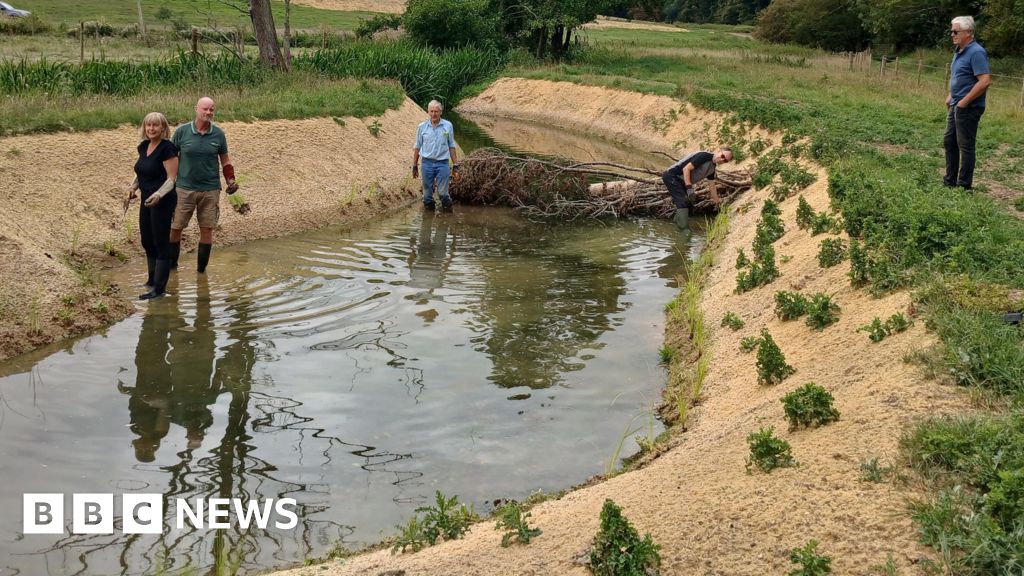
Hertford’s rare chalk river restored to its original course
 HMWT
HMWTWork on the River Ash started in 2024 and was completed in August A “ambitious” project to restore a 4.3-mile (7km) stretch of a rare chalk river to its original course has been completed.
Herts and Middlesex Wildlife Trust said the “landmark”…
Continue Reading
-
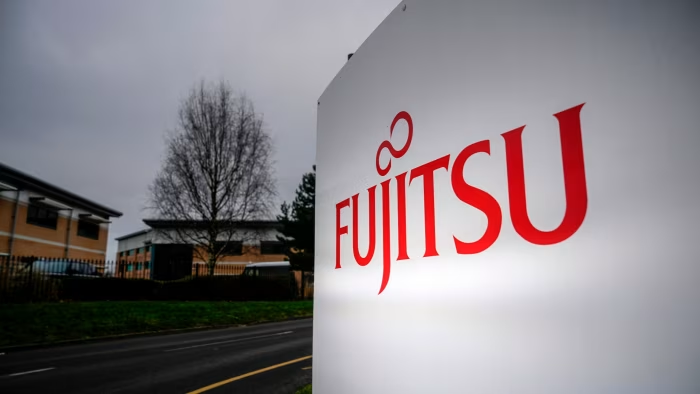
Boss of company linked to Post Office scandal gets 50% pay rise
Unlock the Editor’s Digest for free
Roula Khalaf, Editor of the FT, selects her favourite stories in this weekly newsletter.
The head of the UK arm of Fujitsu, the technology group at the centre of the Post Office Horizon scandal, received a 50 per cent pay rise last year as its parent company injected fresh capital to offset falling orders and reputational damage.
Accounts for UK-based Fujitsu Services, a subsidiary of the Japanese IT services company, show its highest-paid director — understood to be UK head Anwen Owen — earned £591,000 in the year to March 2025, up from £388,000 a year earlier. Owen, a former senior civil servant who joined the UK company’s board in 2022, previously held roles at the Treasury and Cabinet Office.
According to the accounts, Fujitsu’s parent injected £80mn into the business to “strengthen the balance sheet” and support operations, following a £200mn capital infusion the previous year.
Revenues fell 9.2 per cent to almost £1.1bn, while profit recovered to £15mn from a loss the year before. However, the company’s order pipeline contracted by a fifth to £904mn, with management warning that the “loss of future new business due to reputational damage arising from the Horizon inquiry remains a key risk”.
More than 900 sub-postmasters were wrongly prosecuted between 1999 and 2015 due to faults in the Horizon computer system, which was developed by Fujitsu and falsely showed accounting shortfalls. More than 230 sub-postmasters were jailed, and at least 13 are believed to have taken their own lives.
In its latest filings, Fujitsu said it “continues to support the inquiry process until its conclusion” and is “engaging in discussions with the UK government regarding an appropriate and proportionate contribution” to compensation for victims.
The company said ahead of the inquiry’s final findings, “it is not possible to estimate the amount of a future financial contribution” and therefore no provision has been made in its balance sheet.
The pay rise and cash injection were first reported by the Times and the Sunday Telegraph.
Fujitsu has suspended bidding for UK government contracts until the conclusion of the public inquiry into the Horizon system.
The company told the Financial Times that it continued to work with the government “to ensure we adhere to the voluntary restrictions we put in place regarding bidding for new contracts” and was “engaged with government regarding Fujitsu’s contribution to compensation”.
It added that “improved operating margins and the successful delivery of strategic cost reduction measures” had helped boost pre-tax profits.
“We remain focused on supporting our UK customers, through the delivery of innovative IT services and solutions,” the company said.
The UK government last week pledged to improve the compensation schemes for victims of the Horizon scandal. Business secretary Peter Kyle said ministers would create an appeals process for sub-postmasters who accepted fixed-sum payments under earlier settlements, allowing them to pursue full, evidence-based redress.
The first report of the public inquiry, released in July, found that both Post Office and Fujitsu employees were aware of serious flaws in the Horizon system but “maintained the fiction” that it was reliable. The government has accepted all but one of the inquiry’s 19 recommendations, including proposals for an independent body to oversee redress in future cases.
Fujitsu’s accounts also disclose a £4mn damages claim filed by a former sub-postmaster in July. Fujitsu does not identify the claimant, but media reports have linked the case to Lee Castleton, whose story featured in ITV’s Mr Bates vs the Post Office. The company said it was “not yet possible to predict the outcome” of the case.
Continue Reading
-

The Targeted Pulse: Updates in Lung, Breast, and Skin Cancers | Targeted Oncology
Welcome to this week’s edition of The Targeted Pulse, your weekly wrap-up of the top developments in oncology. This week, we saw several breakthroughs in targeted therapies and FDA decisions, bringing renewed hope to patients and clinicians alike. From regulatory designations for promising new drugs to crucial clinical trials, here are the top stories that shaped the week.
Low-Dose Nivolumab Offers Novel Strategy for Hodgkin Lymphoma Treatment A phase 2 study found that a low-dose regimen of the immunotherapy drug nivolumab (Opdivo; 40 mg) combined with lenalidomide is a highly effective, chemotherapy-free strategy for classical Hodgkin lymphoma (cHL). The combination achieved an overall response rate of 90% with a favorable safety profile.
Crucially, researchers observed that the 40 mg dose was sufficient to achieve complete PD-1 receptor occupancy, suggesting that the standard, higher nivolumab dosing may be excessive. The findings advocate for using pharmacodynamic biomarkers to guide personalized, cost-effective dosing schedules. This evidence-based approach challenges traditional dosing models, offering a path to significantly reduce treatment costs and improve global access to nivolumab, especially in resource-limited areas. A phase 3 trial is currently underway to compare this novel low-dose regimen with the standard ABVD chemotherapy.
FDA Approves Lurbinectedin/Atezolizumab for ES-SCLC Maintenance The FDA has approved the combination of lurbinectedin (Zepzelca) and the immunotherapy atezolizumab (Tecentriq) for first-line maintenance treatment in patients with extensive-stage small cell lung cancer (ES-SCLC). This regimen is for patients whose disease has not progressed after initial induction therapy.
The approval is based on the phase 3 IMforte trial, which demonstrated statistically significant improvements in survival. Compared to atezolizumab alone, the combination reduced the risk of disease progression or death by 46% and the risk of death by 27%, with a median overall survival of 13.2 months. This maintenance strategy addresses a critical need in ES-SCLC to proactively prevent aggressive relapse.
FDA Approves Cemiplimab for Adjuvant Cutaneous Squamous Cell Carcinoma The FDA has approved the immunotherapy cemiplimab-rwlc (Libtayo) as the first and only adjuvant treatment for adults with high-risk cutaneous squamous cell carcinoma (CSCC) following surgery and radiation.
This approval is based on the phase 3 C-POST study, which demonstrated that cemiplimab significantly improved disease-free survival (DFS). The treatment reduced the risk of cancer recurrence or death by 68% compared with placebo, addressing a critical unmet need for patients with a high risk of relapse. The findings also showed an 80% reduction in locoregional recurrence risk, marking a practice-changing milestone in preventing recurrence for this vulnerable population.
Orca-T Earns FDA Priority Review in Heme Malignancies The FDA granted priority review to the biologics license application (BLA) for Orca-T, an investigational allogeneic T-cell immunotherapy for treating high-risk hematologic malignancies, including AML, ALL, and MDS. The priority review is based on data from the phase 3 Precision-T study. This trial showed that Orca-T significantly improved patient outcomes compared to standard allogeneic hematopoietic stem cell transplant (alloHSCT), particularly in achieving survival free of chronic graft-vs-host disease (cGVHD). Specifically, Orca-T achieved a high survival rate with a much lower incidence of moderate to severe cGVHD (13% vs 44%). This milestone aims to provide a potentially curative option with reduced treatment-related complications.
Dato-DXd Delivers Significant TNBC Survival Benefits in Phase 3 Trial The antibody-drug conjugate (ADC) datopotamab deruxtecan (Dato-DXd; Datroway) showed statistically significant improvements in both overall survival (OS) and progression-free survival (PFS) for the first-line treatment of metastatic triple-negative breast cancer (TNBC). The pivotal phase 3 TROPION-Breast02 trial demonstrated that Dato-DXd was superior to standard chemotherapy for patients for whom immunotherapy was not a treatment option. This is the first trial to show an OS benefit in this challenging patient population, suggesting a potential shift in the standard of care for a disease often associated with a poor prognosis.
Continue Reading
-
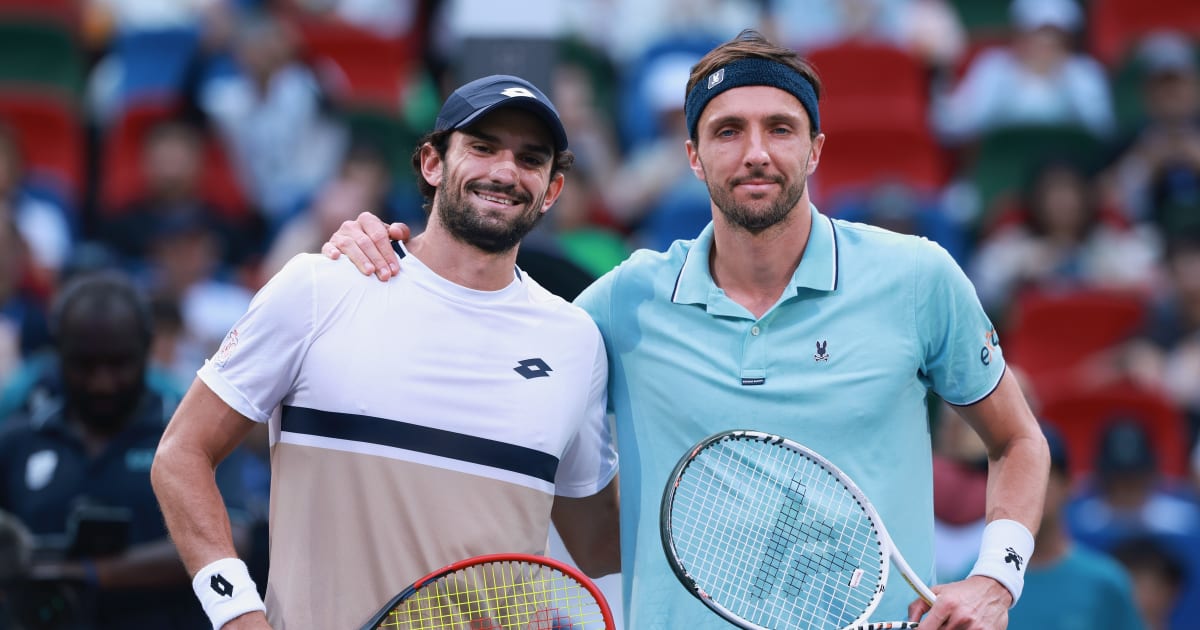
Qualifier Valentin Vacherot triumphs in all-cousin final against Arthur Rinderknech
From alternate to qualifier, Valentin Vacherot is now the champion of the 2025 Shanghai Masters.
The Monegasque came from a set down to become the first tennis player from Monaco to win an ATP title, even more extraordinarily against his cousin,…
Continue Reading
-

Weather Watch: United States Grand Prix 2025 forecast
Formula 1 begins a run of races across the Americas this week, aptly kicking-off at the Circuit of the Americas.
A visit to COTA is always popular with drivers, teams and fans alike, and most of the time, there’s not been the need to pack…
Continue Reading
-

Study Reveals ‘Alarming’ Rise of Superbugs in Newborn Babies : ScienceAlert
Humanity’s war against drug-resistant microbes is not going very well.
Antibiotic resistance has rapidly become one of our species’ leading causes of death, claiming an estimated 5 million lives globally in 2019. That already exceeds the…
Continue Reading
-

From the Archives: Victoria Beckham on Finding Her Life’s Passion
Like many women designers, Victoria approaches her work in a way that’s uniquely personal and subjective. “I’ve always had to make the best of what I’ve got,” she tells me. “I’ve never been a six-foot-tall, skinny model [she is five feet…
Continue Reading
